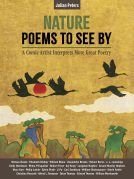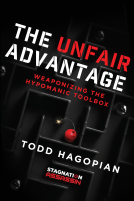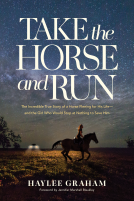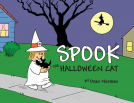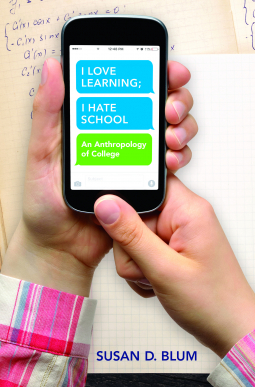
"I Love Learning; I Hate School"
An Anthropology of College
by Susan D. Blum
This title was previously available on NetGalley and is now archived.
Send NetGalley books directly to your Kindle or Kindle app
1
To read on a Kindle or Kindle app, please add kindle@netgalley.com as an approved email address to receive files in your Amazon account. Click here for step-by-step instructions.
2
Also find your Kindle email address within your Amazon account, and enter it here.
Pub Date Jan 13 2016 | Archive Date Mar 22 2016
Description
Frustrated by her students’ performance, her relationships with them, and her own daughter’s problems in school, Susan D. Blum, a professor of anthropology, set out to understand why her students found their educational experience at a top-tier institution so profoundly difficult and unsatisfying. Through her research and in conversations with her students, she discovered a troubling mismatch between the goals of the university and the needs of students.
In "I Love Learning; I Hate School," Blum tells two intertwined but inseparable stories: the results of her research into how students learn contrasted with the way conventional education works, and the personal narrative of how she herself was transformed by this understanding. Blum concludes that the dominant forms of higher education do not match the myriad forms of learning that help students—people in general—master meaningful and worthwhile skills and knowledge. Students are capable of learning huge amounts, but the ways higher education is structured often leads them to fail to learn. More than that, it leads to ill effects. In this critique of higher education, infused with anthropological insights, Blum explains why so much is going wrong and offers suggestions for how to bring classroom learning more in line with appropriate forms of engagement. She challenges our system of education and argues for a "reintegration of learning with life."
Advance Praise
“Susan D. Blum wrote this vitally important book to understand the mismatch between learning, ‘which students may love,’ and schooling, ‘which many students hate.’ While so much of school and college is familiar to many of us, Blum uses anthropology’s emphasis on holism and comparison to make it strange and interesting again. Extending beyond college campuses to consider all of mass schooling, “I Love Learning; I Hate School” points out how many of the practices that are commonplace in today’s colleges and schools actually have a corrosive effect on student interest and engagement. It denaturalizes Western schooling to reveal its many ‘oddities,’ including age segregation, decontextualized learning, an emphasis on grades, and the production of failure.
Blum draws on research from anthropology, cognitive science, affective neuroscience, child psychology, and human development, as well as her own original research and classroom experimentation, to show how these practices are misaligned with ‘the way humans are’ and actually learn. Looking across cultural space and historical time, she examines the variety of ways humans have engaged in our primary adaptive advantage: learning. Observing that teaching itself is ‘very rare in the ethnographic record,’ Blum finds that people tend to learn in multimodal ways, when they have a need or desire to learn, by doing, by showing others, by being active, through observation, through play, through guided participation, and when there are genuine consequences. Importantly, motivation for learning is powerfully related to perceived relevance, sociality, and affective experience. All of this helps to explain, for example, why so many students today are more engaged with extracurricular activities than their academic work: because these activities are more tightly aligned with key human learning inclinations.
"I Love Learning; I Hate School" is a must-read for all who care about educational improvement and renewal. Moving beyond critique, Susan D. Blum shows a way forward with practical ideas instructors at all levels can use to make their classrooms less school-like, and in Blum’s words, more ‘joyful, relevant, and humane.’”—Peter Demerath, University of Minnesota, author of Producing Success: The Culture of Personal Advancement in an American High School
“Susan D. Blum has written the book the majority of college faculty would write if they only had her encyclopedic knowledge, deep insight, and courage.”—David F. Lancy, Emeritus Professor of Anthropology, Utah State University, author of The Anthropology of Childhood: Cherubs, Chattel, Changelings
“In ‘I Love Learning; I Hate School,’ Susan D. Blum courageously achieves the goal of anthropologists who work in their own culture: she makes the familiar strange. She does so by painting a vivid portrait of learning in today’s universities, a portrait that those of us who love university teaching know but are reluctant to admit—the system too often fails even our most capable students. Blum leads the reader on an intimate, often uncomfortable, journey, a journey that everyone associated with higher education should take.”—Christine Finnan, College of Charleston, coauthor of Accelerating the Learning of All Students: Cultivating Culture Change in Schools, Classrooms, and Individuals
Available Editions
| EDITION | Other Format |
| ISBN | 9781501700217 |
| PRICE | $24.95 (USD) |
Average rating from 20 members
Featured Reviews
 Pat M, Reviewer
Pat M, Reviewer
5★
“I believe the institution of school has outlived its usefulness. It rarely succeeds. There is chaos in discussing its aims, implementation, measures. As a system of educating, its returns on genuine learning are shameful. As a signaling game and credential competition, it is incredibly wasteful. As a way of trying to squeeze all individuals into a tight mold, it is abusive and creates suffering. This system began, basically, with the Common School movement. We can’t significantly improve a conceptually flawed system; we can only replace it.”
This is a well-researched, interesting, and readable collection of more information than you ever thought was available regarding complaints about “school” from teachers, students, and the public, mainly in the US. There are many personal stories and anecdotes that I enjoyed and which should keep readers engaged. The author recognizes the dilemma facing those pushing for change.
“There are enormous corporate and interest-group elements that would challenge any dismantling of the half-trillion-dollar system.”
And one size certainly won’t fit all. “Students growing up in a two-professional household with a taste for classical music and organic food will not be the same as adolescents raising their younger siblings while Mom is in jail. If these last get a chance to go to college, they will have a different perspective on the whole experience.”
She is refreshingly honest about her early attitude to learning and admits she was comfortable in the traditional school environment. But over the last many years of teaching, she’s come to realize how unnatural this setting is for many students who would probably benefit from other methods, including free, non-institutional resources like the TED talks and MOOCs—massive open online courses.
As Blum points out, “Most people learn most of what they know without direct instruction. Teachers—and sometimes teaching—are often optional. Babies learn to walk and talk. We are born to learn—but how?”
Little kids watch big kids surf, ask for tips, and then have a go themselves. And they’ll do it all day long. College is full of kids who learn all kinds of things in their extra-curricular activities, and they love it.
I have a term I use often—“academic airheads”—which is for those people who can quote the great philosophers or name-that-tune at classical concerts (and probably got good grades in school). But if I’m ever stranded on a desert island, I sure hope it’s with the ‘real’ people of the world who know how to fix a busted boat or catch fish.
Not everyone is suited to the classroom. There are countless YouTube how-to videos for people who don’t want to darken the door of a classroom but who just want learn things (like how to fix a busted boat).
Blum quotes and references many studies and papers, the upshot of which is that we have unwittingly developed a system that children and adolescents have learned to ‘game’ so they can appear to be learning in class while just warming their chairs. Then, with some quick memory work and before they forget it, they manage to regurgitate enough of the right amount of necessary information in papers and exams to get good grades.
And it’s all about the grades. Grades to keep moving up through the system. No matter if you really understand anything. Just so it looks good on paper and the right prep school will accept you and then the right Ivy League College will accept you and then the right Wall Street firm will head-hunt you and then you can live happily ever after – possibly never learning much of any great use in your career at all.
Grades are the reward for ticking the right boxes, but many studies show that rewards are counter-productive.
“Edward Deci conducted a study with a result so amazing that nobody believed it. College students were divided into two groups. All were given a challenging puzzle to work on, but half earned money for solving it. Researchers left the room and observed the students. The ones who had been paid showed less interest in the puzzle than the other group. This finding has been replicated again and again and again.”
Blum says at the outset that this is not a manual, but she does give some useful suggestions.
She’d like a two year break after high school to let students mature. A Gap Year is popular in some cultures, but she advocates two.
“If I could make only one change to conventional schooling, it would be to stop giving grades . . . I have begun to give my students, in smaller classes, rubrics without grades. I tell them that if this causes too much anxiety, I’ll be happy to tell them what grade the rubric would translate to. (Nobody has requested this, so far.)”
Referring to trees that grow crooked in bad times, Blum says we must find better ways to engage students and foster real learning.
“Many of our students are like those twisted trunks. They seek fulfilment and passion and meaning. Nourishment. If they cannot get it from the thin pabulum of our cognitive curriculum, they will look for it in beer pong and football chants and fast food work and all those places outside our classrooms.”
Like YouTube.
If you have any interest in education and how we might fix it, this is a great resource. Good luck!
Enormous thanks to NetGalley and Cornell University Press for providing me with a pre-publication digital copy. I apologize if any of the quotations are changed before publication, but she said it better than I could.
 Educator 317339
Educator 317339
I recognize myself in these pages, and my children. Loving learning, but sometimes bored by school because of how schools deliver that learning. It is so hard for education (at all levels -- elementary through post-graduate) to be meaningful to all students, set up as it is. Luckily, I teach gifted enrichment, so the students in my classes are mostly there because they are excited, but certainly there are some who attend only because their parents insist on it, and they would rather be doing something else or doing it differently. Students can read at a much higher level if it is something that they are INTERESTED in; unfortunately, not all subjects are interesting to all students as they are currently taught.
Readers who liked this book also liked:
Todd Hagopian
Business, Leadership, Finance, Nonfiction (Adult), Professional & Technical
John Kotter; Holger Rathgeber
Business, Leadership, Finance, Nonfiction (Adult)
Antony Johnston
General Fiction (Adult), Mystery & Thrillers, New Adult
